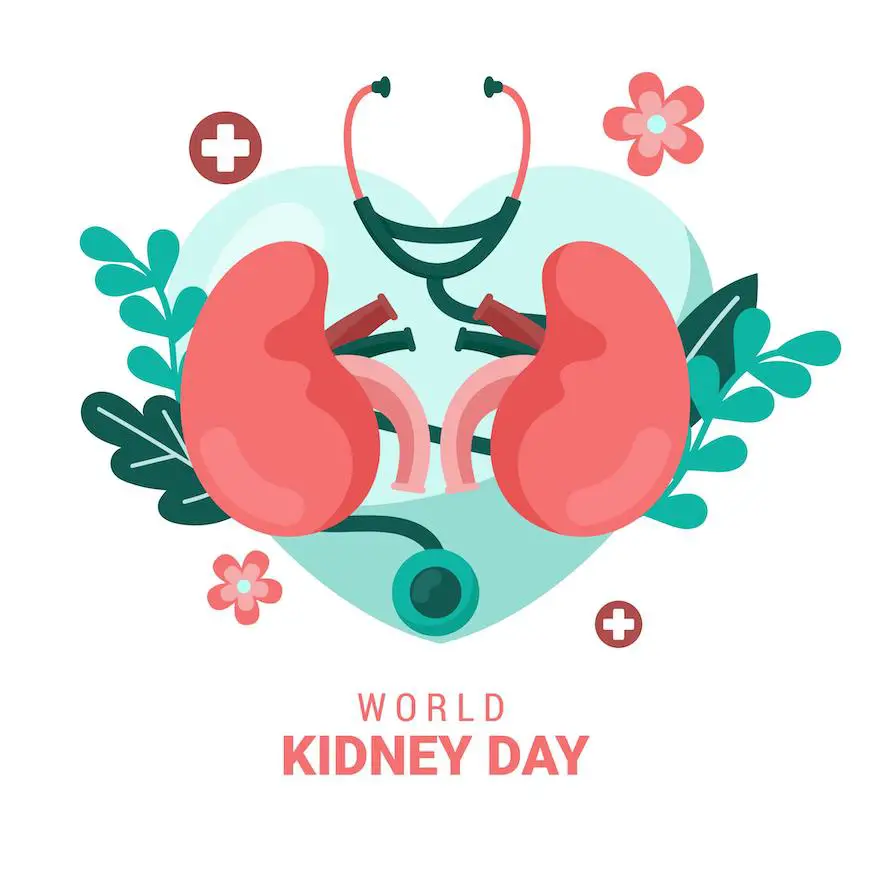Can dry eye cause blindness? This is a common question, as dry eye syndrome affects millions worldwide. Dry eye occurs when your eyes don’t produce enough tears or when tears evaporate too quickly, leading to discomfort, irritation, and blurred vision.
In most cases, dry eye disease is not a serious problem and can be easily treated, but in some cases, it can become serious if left untreated. While can dry eye cause blindness might be a concern, This article discusses how and when dry eye disease can lead to blindness.
What is dry eye syndrome?
Before answering, “Can dry eye cause blindness?”, it’s essential to understand the condition. Dry eye occurs when the balance of tear production and drainage is disrupted, leading to insufficient moisture on the eye’s surface. The lack of moisture results in symptoms like grittiness, itching, or irritation. Many people ask, can dry eye cause blindness? due to these uncomfortable symptoms.
Dry eye symptoms
Dry eyes are a common experience, often triggered by allergies, a cold, or outdated contact lenses. Nearly 16 million Americans report symptoms of dry eye. Common symptoms of dry eye are:
- Blurry vision: This is a common dry eye symptom that occurs frequently. Your vision may be clear in the morning because your eyes are closed while you sleep. It dries up very quickly when you wake up and your vision becomes blurry.
- Difficulty blinking: Dry eye disease prevents you from producing enough tears and oil to protect your tear film. When you blink, your eyelids need a smooth surface to move forward. Dry eyes can create friction and make it difficult to blink without proper lubrication.
- Eye strain and fatigue: Looking at a phone or computer for a long time can cause eye strain. This routine can change how often you blink. Anyone can experience eye pain, but people with dry eyes are more prone to it.
- Inability to cry: If you don’t produce tears when you’re tired, you may suffer from dry eyes. You feel sad when you want to cry but you can’t release your emotions through crying. Some people with dry eyes think they can’t cry because they can’t express their emotions. What is happening is that your eyes are not producing tears.
- Redness: Dry eyes can be red or bloodshot. When you blink, the tear film spreads across the cornea, the outer layer of the eye. Dry eyes can make it difficult for your eyes to produce tears. Blinking can cause the eyelashes to rub against the dry skin, causing irritation. The blood vessels in the sclera and the whites of the eyes are red.
- Watery eyes: Some people find it difficult to cry, while others shed a lot of tears. It may not seem like it, but watery eye is also a sign of dry eye. Research shows that these symptoms are caused by a subtype of dry eye called evaporative dry eye disease. This type of dry eye disease occurs when you don’t produce enough tears.
Dry eye risks
To understand can dry eye cause blindness, it’s important to know the risk factors. People over 50, those with autoimmune diseases, and those exposed to harsh environments are more likely to develop severe symptoms. However, severe and untreated cases of dry eye syndrome can lead to complications that may affect vision:
- Corneal damage: A significant risk associated with chronic dry eye is damage to the cornea, which is the clear outer layer of the eye.Tears provide necessary moisture and nutrients to the cornea. When the eyes are persistently dry, the corneal surface can become damaged, leading to abrasions, ulcers, or scarring. If left untreated, corneal damage can impair vision.
- Infections: Tears also act as a protective barrier against infections by flushing out bacteria and debris. Insufficient tear production raises the risk of eye infections, such as keratitis, which is the inflammation of the cornea. Frequent infections could cause long-term damage, which leads to the question: can dry eye cause blindness? Yes, if severe infections go untreated.
- Blurred vision: People with chronic dry eye may experience ongoing blurred vision. Although this is often reversible with appropriate treatment, extended irritation and damage to the eye’s surface can lead to long-term vision issues.
- Sensitivity to light: Dry eye sufferers may experience increased light sensitivity (photophobia), which can affect their quality of life and ability to see clearly, particularly in bright environments. While this doesn’t directly answer whether can dry eye cause blindness, it does affect the quality of life and vision in bright environments.
Can dry eye lead to blindness?
While dry eyes themselves do not directly cause blindness, untreated dry eye can lead to complications that may impair vision. When dry eye is left unmanaged, the lack of adequate lubrication and moisture can result in chronic inflammation and damage to the corneal surface.

This chart illustrates the prevalence of Dry Eye Syndrome (DES) and related conditions across different age groups and genders. It shows that DES is more common in older populations, particularly those aged 60-79 and 80+, with prevalence rates exceeding 40%. Meibomian gland dysfunction, a related condition, is also highlighted, while blepharitis shows lower prevalence. Additionally, the chart indicates that females experience DES more frequently than males.
Managing dry eye with proper treatments, such as artificial tears, prescription medications, or lifestyle changes, can protect the cornea from potential damage and preserve vision.
What causes dry eye
Dry eye disease is a complex condition caused by various factors that disrupt the natural tear film of the eye. The tear film has three layers: mucus, water, and oil. When any of these layers is compromised, the tear film becomes imbalanced, leading to reduced tear quality or inadequate tear production. Some of the main reasons are:
- Meibomian Gland Dysfunction (MGD) and Blepharitis: MGD and blepharitis are commonly linked to dry eye disease, as blocked and inflamed oil glands disrupt tear production, resulting in dry eye symptoms.
- Age and gender: People over 50 are more prone to dry eye symptoms, particularly women, due to hormonal changes related to pregnancy and menopause.
- Medical conditions: Sjorgen’s syndrome, rheumatoid arthritis, lupus, IBS, thyroid problems, and vitamin A deficiency can cause dry eye.
- Screen use: Excessive screen use, especially continuous screen use, can cause less blinking and dry eyes.
- Contact lens use: Inadequate hygiene and improper practices, such as overuse or sleeping in contact lenses, can lead to dry eyes.
- Lifestyle and environment: Using cosmetics and toxic substances and living in very dry or cold climates can affect eye health and cause dry eye symptoms.
How to prevent problems from dry eye
Depending on the nature of dry eye disease, it is important to find ways to prevent and reduce the risk of dry eye disease or reduce the symptoms of dry eye disease. You may consider trying one or more of the following precautions:
- Getting screened and tested: One of the best ways to prevent dry eye disease and its complications is to get your eyes checked regularly, especially as you get older. If possible, it is best to visit an eye care professional every year so that they can check the eyes
- Changing medications: Because some medications can cause dry eye problems, you may want to talk to your healthcare provider about changing prescriptions that may cause dry eye symptoms. Remember: Do not stop taking prescribed medications or make any changes without your healthcare provider’s approval or guidance.
- Wearing sunglasses: Light scattering can cause dry eye. Your eye care professional may recommend that you wear dark-colored sunglasses to protect yourself outside.
- Using a humidifier: Because it can make dry eye more common or make dry eye symptoms worse, you may want to purchase a humidifier for your home or workplace. It adds moisture to the air, making your eyes more lubricated and moisturized.
- Sleeping well: Adults generally need 7 to 8 hours of rest a night. Lack of sleep or sleep problems can reduce the quality of your tears.
So, can dry eye cause blindness? While rare, blindness is possible if dry eye leads to corneal damage, infections, or other serious complications. However, with early diagnosis and appropriate treatment, the chances of this happening are minimal. If you find yourself asking, can dry eye cause blindness, take it as a sign to consult with an eye care professional to manage the condition and protect your vision.
Frequently Asked Question
Can dry eyes cause night blindness?
Dry eyes can contribute to poor night vision but don’t directly cause true night blindness. Severe dryness disrupts the tear film, causing blurred vision, glare, and halos, which can make it harder to see in low light or at night. Proper treatment can help improve night vision in those with dry eyes.
Who is at risk for developing dry eye syndrome?
People at higher risk for dry eye syndrome include older adults, women (due to hormonal changes), contact lens users, those with prolonged screen time, individuals with autoimmune or thyroid conditions, certain medication users, and those in dry or windy environments.







